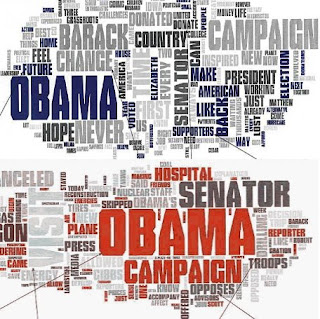
Entertainment Weekly asked BO for some of his
favorite movies. His choice of favorite movie president is "
Jeff Bridges in
The Contender... He was charming and essentially an honorable person, but there was a rogue about him. The way he would order sandwiches — he was good at that." An interesting choice — a great movie about realpolitic written by a fellow poker player — and a good eye for detail: Bridges said the sandwiches were the key to the character.
The first film he remembers seeing as a kid? "One of the first was
Born Free. I remember that movie having an impact on me. I think I may have teared up at the end when they release Elsa. I couldn't have been more than 4 or 5, but I remember choking up on that." Africa, a fellow Leo, letting go of something you love to set them free... An interesting thing for a kid who lost his African father to get choked up about.
If he could be any superhero, which superhero would he be?": "I was always into the
Spider-Man/
Batman model. The guys who have too many powers, like
Superman, that always made me think they weren't really earning their superhero status. It's a little too easy. Whereas Spider-Man and Batman, they have some inner turmoil. They get knocked around a little bit." Apart from being accurate, dramatically speaking — that's why those movies are better movies — a potential insight into his attitudes to his country:
not blind faith in an insuperable goliath, but love for a complex, contested republic that is all the stronger for being tested.
Or maybe he just loved the new bat bike. McCain also goes for Batman, but because he's misunderstood. "He does justice sometimes against insurmountable odds. And he doesn't make his good works known to a lot of people, so a lot of people think he's just a rich playboy." Shades of McCain's embarrassment about his own wealth. He also liked the
new Indiana Jones movie, although one suspects mostly for the punchline it allows him: "The old guy wins."
Best Vietnam movie, inexplicably, draws
"We Were Soldiers. That's a very good film." He;s on firmer territory when it comes to Brando. "
Elia Kazan made three movies with
Marlon Brando. One was
A Streetcar Named Desire, one was
On the Waterfront, and the third was
Viva Zapata! Many people think Brando's performances in
Streetcar and
Waterfront were his best. I think
Zapata! was his best. I'm in the minority about this. But go back and watch the scene of his wedding night, with [Brando] and Jean Peters — the actress who later married
Howard Hughes, who made her give up acting — when she teaches him to read by taking out the Bible and reading it with him. That's a poignant scene."
His favorite movie/TV president is President David Palmer on
24, the show that gave the CIA so many of its ideas about interrogating detainees. "He's fabulous. He's a guy who makes tough decisions, he takes charge, he's ready to sacrifice his interest on behalf of the interest of the country. My least favorite is the one that got stabbed by his ex-wife but who, according to your magazine, may come back to life, along with
Jack Bauer's daughter, Kim..."
Isn't he, um, the black one? "You know, I hope that I and all Americans can be color-blind about any president."















































,%202023.jpg)













